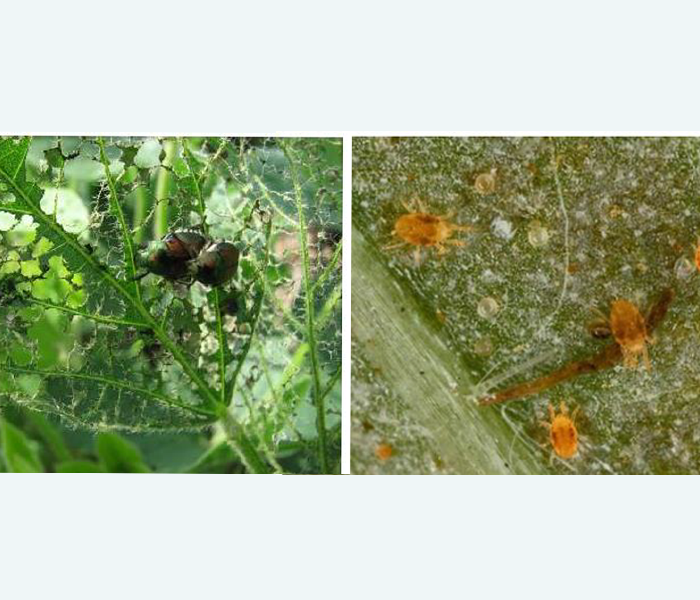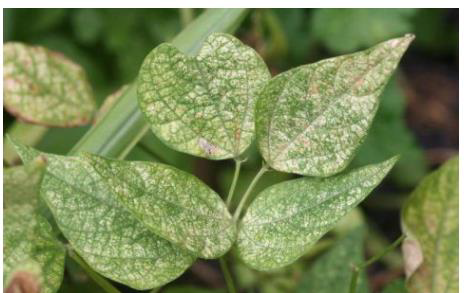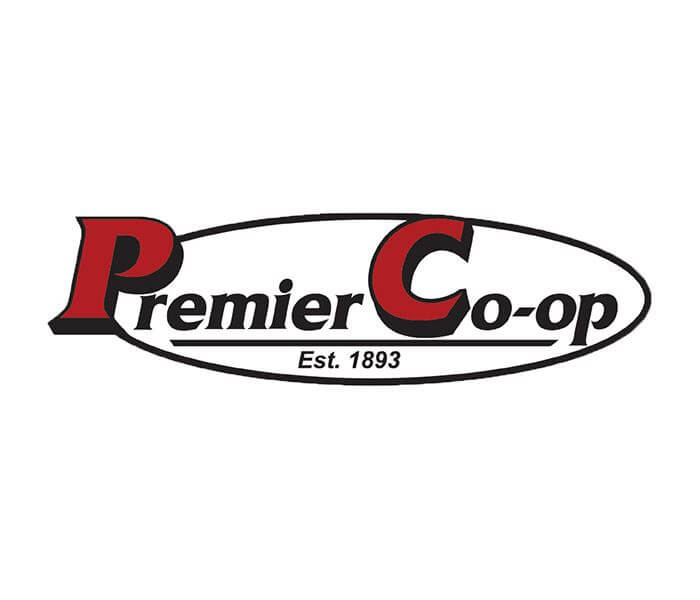Nobody likes insects.
Nobody likes insects, plain and simple. But, we really don't like insects when they're affecting our crops and livelihood. Both Japanese beetles and spider mites can cause problems on your farm. Here's some solutions to the problems you may endure.
Japanese Beetles
Japanese beetles can damage both corn and soybean fields. They feed on soybean leaves leaving a skeletonized leaf behind and feed on corn silks which can cause issues with pollination.
In soybean fields the treatment threshold is 30% defoliation before bloom and 20% after bloom. Most people over-estimate defoliation. Because the adults are highly mobile, migrating adults can re-infest a field after treating the initial population.
Japanese beetle percent defoliation of 10% (left), 16% (center), and 25% (right) caused by adult Japanese beetles. Photo Marlin E Rice.
In corn fields if there are 3 or more beetles per ear, silks have been clipped to less than ½-inch, AND pollination is less than 50% complete a grower should consider a foliar insecticide treatment. Remember as stated above that migrating adults can re-infest a field after initial treatment
Treatment of Japanese beetles for both corn and soybeans has a variety of options including Arctic 3.2EC, Grizzle Too, Tundra, Agri-mek SC and Tundra Supreme. Always read and follow labels
Spider Mites
Spider mites are very small (0.05 cm long) and have 8 legs. The body can be yellowish orange and somewhat translucent, so sometimes hard to see.
Spider mites will typically infest soybean fields along grassy field edges first. The pest thrives in hot and dry conditions (>90 degrees F).
Damage from spider mites appears as stippling and yellowing of leaves. As these symptoms and move up through the canopy economic losses can occur.
Soybean leaf yellowing caused by spider mite feeding. Photo Whitney Cranshaw
When lower leaf yellowing is readily apparent, leaf drop is common, stippling and webbing is common in the middle canopy, and stippling in the upper canopy it is time to treat as economic loss has likely occurred.
Not all insecticides are effective at controlling spider mites. Chlorpyrifos, dimethoate, and bifenthrin can be used to control spider mites. Common names would include: Cobalt Advanced, Dimate, Hero, Tundra, Tundra Supreme, Agri-mek SC, and Yuma. Always read and follow labels.
Contact your local Premier agronomist for more information or if you're experiencing pest problems in your fields.






